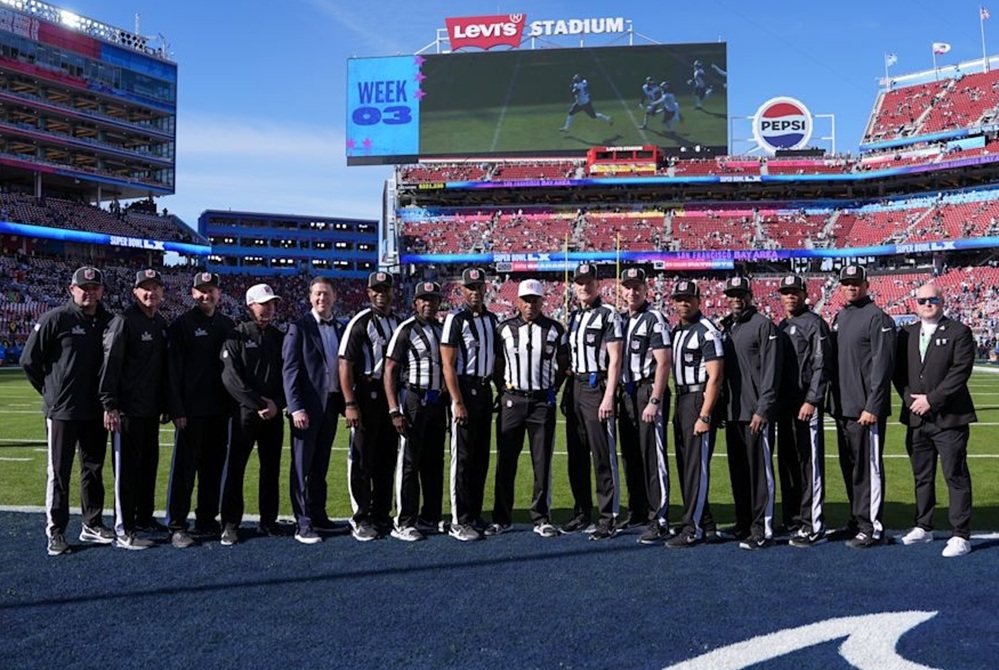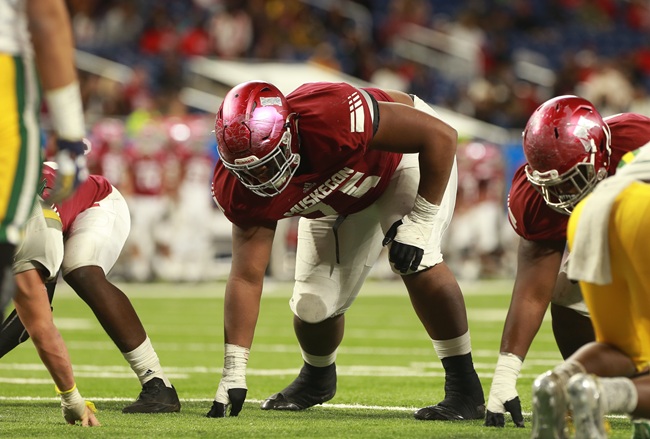
Tales of the Tape from Bygone Days
September 10, 2014
By Rob Kaminski
MHSAA benchmarks editor
How’s this for a new reality/espionage TV series? Participants have just hours to exchange valuable video to counter-intelligence representatives at random drop points along state highways, then return to home base, study the footage and devise an action plan that same day.
Oh, and there are no cell phones or any other form of portable communication should plans go awry en route.
For longtime Escanaba High School football coach Dan Flynn, it’d be like watching reruns of his days as an assistant coach for the Eskymos. As one of the largest schools in the Upper Peninsula, Escanaba’s road through the MHSAA Playoffs almost always meant facing opponents from below the bridge, which made film exchange a challenge to say the least.
“I’ve logged thousands of miles, maybe more than anyone ever, exchanging film, tapes and DVDs with our opponents during the MHSAA Playoffs,” Flynn said.
“Being in Region 1 geographically, we knew we’d travel,” Flynn added. “And you couldn’t afford to just look at anyone and everyone that you might play. You had to do your homework to narrow down possible opponents if you wanted to go and scout.”
Today, with the MHSAA publishing Football Playoff Points on a weekly basis following Week 4, much of the guesswork as to potential first-round opponents has disappeared.
Additionally, most schools upload game footage to the web within 24 hours following each contest. On Selection Sunday, within minutes after a school’s Pre-District foe is announced, a coaching staff and players can be watching video of their opponent.
“We’d started calling coaches or they’d call me in Week 8 or 9, looking at possible matchups and also planning a place to meet to exchange film,” Flynn said.
Plans had to be firm and communications had to be clear, because once hitting the road, there was no way to contact one another.
“This was before cell phones,” Flynn explained. “I had one of first cell phones, which actually was an old bag phone. I’d accumulate outrageous rates for roaming charges going tower to tower.”
Old-school video exchange might be a thing of the past, but a generation of high school football coaches will never forget gas stations, fast-food joints and 24-hour stores nestled off exit ramps across Michigan.
“On that Sunday night, I’d get in the car, and typically drive to Gaylord, or maybe Grayling. In Gaylord it would be the McDonald’s. In Grayling, it’d be Glen’s Food Market. You’d try to arrange to meet at a place that was open 24 hours,” Flynn recalled. “I always got in the car understanding the meeting would be below the (Mackinac) Bridge. Sometimes we’d get lucky and the meeting place would be the Shell gas station just below the bridge on the Mackinaw City side.”
The 200-mile drive to Gaylord routinely took four hours. The further Escanaba advanced in the playoffs, the more times Flynn wore down the tread on his tires. He specifically recalls a hectic weekend in 1979, when Escanaba traveled to Lansing Sexton and defeated Livonia Stevenson in the MHSAA Semifinals to earn a berth in the Finals the following weekend vs. Detroit Catholic Central. Part of the reward for Flynn was another trip to McDonald’s.
“We came from behind in that Semifinal, and we were thrilled that we were going to the Finals. We got back home late Saturday night, then I got in the car the next morning to meet the Catholic Central coaches at 1 p.m.,” Flynn said.
“Coach (head coach Jerry) Cvengros had a meeting set for 5 or 6 that night. I made it back in time, but our guys were still feeling good about the win, so I suggested we hold off a day before showing them the CC film (16 mm film, by the way). Those guys were pretty good.”
Indeed they were, winning the Class A title the following weekend. The Eskymos, however, would return to the Final in 1981, winning the crown, 16-6 over Fraser, as Flynn no doubt logged more miles in preparation.
The most pressing concern today might be quality of the online video, lighting at the fields, or angle of the camera.
Back in the day, just getting a tape felt like victory.
“One year, I traveled all the way to the southeast part of the state, and the opposing coach simply wouldn’t exchange,” said Flynn, explaining that playoff film exchange at the time was only a recommendation, not a regulation. “I learned later that the coach had video of us from a friend who lived in Escanaba. I left on Saturday morning and came back Sunday night. We did eventually get some film later in the week. We lost by two points, but as coaches we didn’t make it a big vendetta and were up front with our kids.”
The MHSAA Representative Council, which included Flynn at the time, upgraded film exchange from a recommendation to a playoff policy in 1990, when schools were required to supply one another with the two most recent game films.
Even so, and as 16 mm film evolved to VHS tapes and then DVDs, coaching delegates still had to make itineraries for October and November weekends. Sometimes twice in the same weekend.
“Even with advancements in technology as we progressed from DVDs to digital, you still need people to operate the devices,” Flynn said. “I met another coach at the Shell station at the Bridge, but he said our software wasn’t compatible with theirs. I drove back the next day, pushed a button, and it worked. I drove all that way to push a button; 16 mm film would have been better.”
Today’s coaches might be a bit more well-versed in technology than those of Flynn’s era, and it’s a good thing. They likely need MapQuest and a GPS to traverse the regions in Northern Michigan that Flynn and his cohorts knew like the back of their hands.

In Shoulder Pads & Stripes, Michigan Superbly Represented at Super Bowl LX
By
Jon Ross
MHSAA Director of Broadcast Properties
February 9, 2026
MHSAA football champion? Check.
NCAA football champion? Check.
Super Bowl champion? Check.
Winning has become routine for Muskegon’s Anthony Bradford.
Bradford starred on the offensive line for the Big Reds, helping deliver the MHSAA 11-Player Division 3 championship in 2017. He kept collecting titles at LSU as part of the Tigers’ national championship team in 2019. Now, he’s reached the sport’s biggest stage as a Super Bowl champion.
 The Seahawks’ starting right guard played a major role in Seattle’s second Super Bowl title, a 29-13 win over New England on Sunday in Super Bowl LX. Seattle rushed for 141 yards and allowed just one sack in the victory.
The Seahawks’ starting right guard played a major role in Seattle’s second Super Bowl title, a 29-13 win over New England on Sunday in Super Bowl LX. Seattle rushed for 141 yards and allowed just one sack in the victory.
Bradford wasn’t the only former MHSAA athlete connected to the Seahawks this season. Wide receivers Tyrone Broden (West Bloomfield, 2019) and Cody White (Walled Lake Western, 2016), along with offensive lineman Logan Brown (East Kentwood, 2019), spent time on the practice squad or injured reserve. Defensive lineman Johnathan Hankins (Detroit Southeastern, 2010) was released in early December.
New England also featured MHSAA ties, with offensive lineman Mike Onwenu (Detroit Cass Tech, 2016) and punter Bryce Baringer (Pontiac Notre Dame Prep, 2017) on the Super Bowl roster.
Super Bowl LX was officiated by referee Shawn Smith, a graduate of Detroit Cody, where he played football and ran track. Smith was a registered MHSAA official for 18 years before advancing to the college ranks and eventually the NFL.
PHOTOS (Top) Shawn Smith, center with white hat, poses for a photo with his officiating crew at Sunday's Super Bowl. (Middle) Muskegon's Anthony Bradford lines up against Farmington Hills Harrison in 2017. (Smith photo courtesy of the NFL/Ben Liebenberg.)

